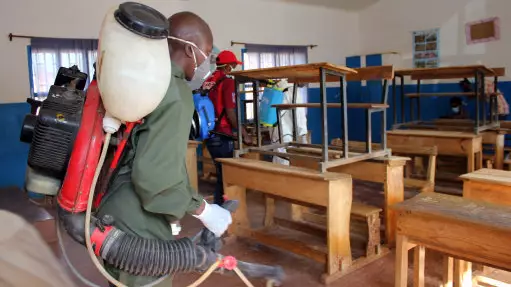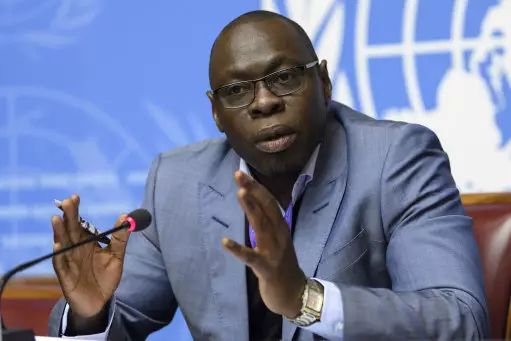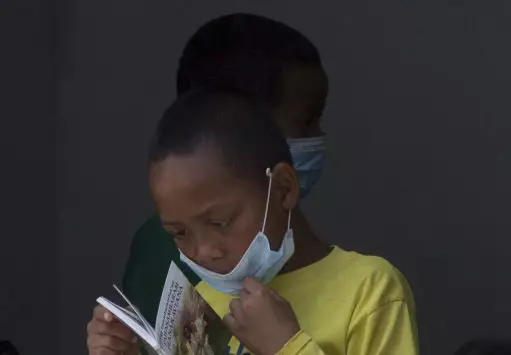
Nine African countries are on high alert after health chiefs revealed that there is currently a deadly outbreak of airborne plague sweeping the Indian Ocean island of Madagascar.
Over 1,300 cases have been reported in the nation, with more than two thirds of those suspected to be pneumonic - the 'deadliest and most rapid form of plague', according to the World Health Organisation (WHO).
The disease is caused by the same bacteria that led to the Black Death, the infamous pandemic that killed at least 50 million Europeans back in the 1300s.
Advert
A WHO official says: "The risk of the disease spreading is high at national level... because it is present in several towns and this is just the start of the outbreak."
While the bubonic variation of the disease commonly spreads via flea bites, pneumonic plague can snowball even more quickly through coughing - and can lead to death within 24 hours.

Ibrahima Soce Fall, the WHO's Regional Emergency Director for Africa, giving an update on the plague to the UN. Credit: PA
Advert
The result is that the outbreak is spreading hard and fast, with other island countries such as the Seychelles, Mauritius, Comoros and Réunion believed to be at risk.
Countries on the east coast of the African continent such as South Africa, Mozambique, Tanzania, Kenya and Ethiopia are also on alert.
Around 50 aid workers are believed to be among the infected, although the number of people who have already lost their lives to the plague is disputed. The WHO's African branch have stated that 93 people have died, whereas the UN say that this figure could actually be as high as 124.
So far, the outbreak has centred on cities including Madagascar's capital Antananarivo and the island's second largest city Toamasina, marking the first time that both places have been affected by the disease.
Advert

A girl reading in a hospital in Madagascar's capital city Antananarivo. Credit: PA
Madagascar regularly sees outbreaks of the disease during the rainy season, with around 600 cases reported each year. These can usually be treated with regular antibiotics if caught in time.
However, officials are more alarmed by this outbreak due to the speed of its spread and the high death count involved.
Advert
International agencies have so far donated over one million doses of antibiotics and nearly 20,000 respiratory masks to try to tackle the outbreak.
The WHO has advised against restricting trade and travel to and from the island, and instead has asked for money to help.
Despite this advice, one of Madagascar's biggest airlines, Air Seychelles, decided to temporarily ground flights earlier this month.
The WHO has stressed that the likelihood of the plague wreaking havoc on other continents is small, saying that the overall global risk of the plague is 'low'.
Advert
Words: Chris Ogden
Featured Image Credit: PATopics: World News, News